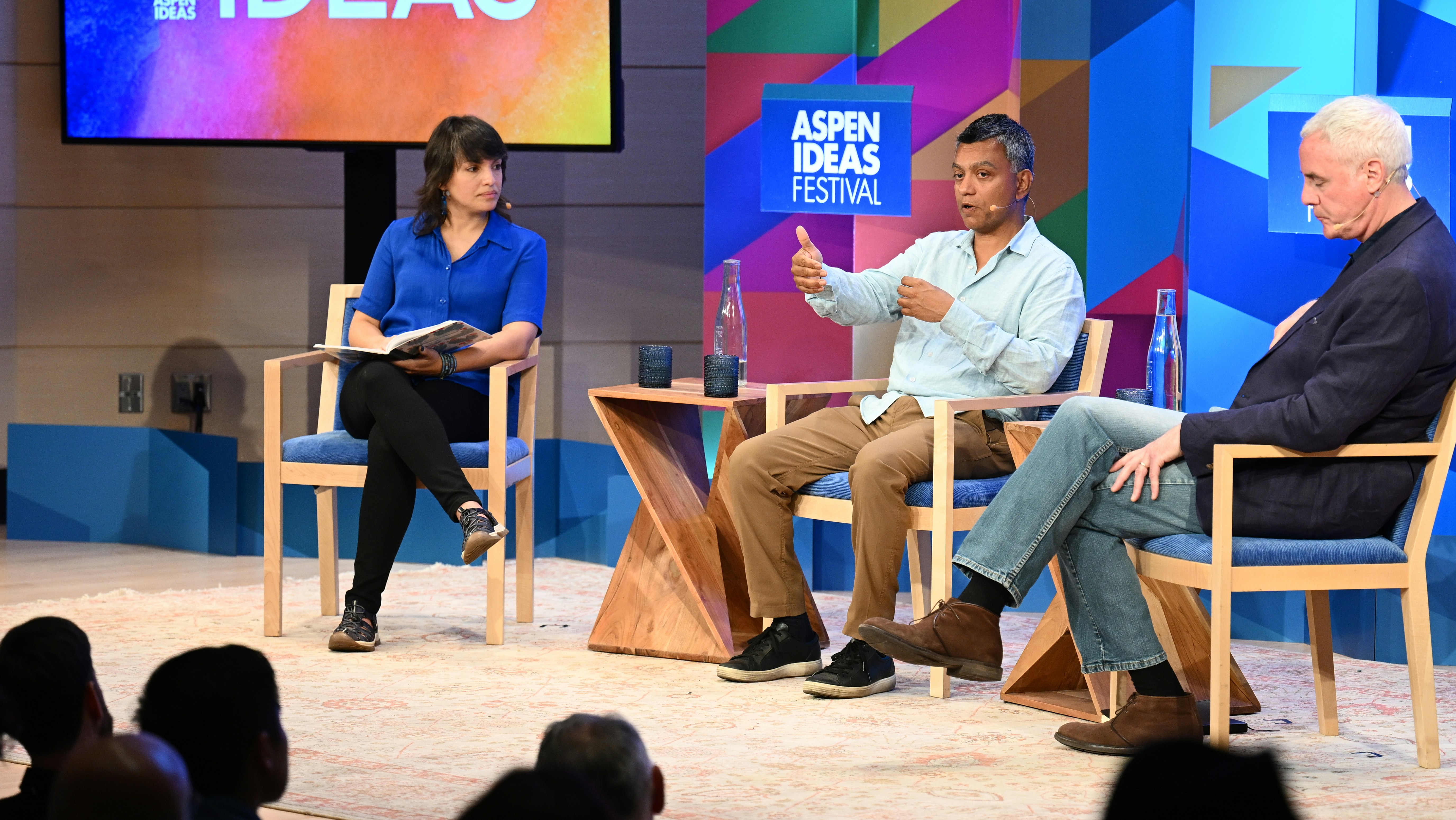
As the Director of the Center for Constructive Communication at MIT, Deb Roy focuses on developing civic communication spaces as alternatives to social media. We caught up with him about building healthier digital forums, how humans and machines might work best together, and why A.I. is a critical tool for civic engagement. Roy spoke at the 2023 Aspen Ideas Festival.
From news headlines today to classic movies like "The Terminator" and other science fiction, there’s speculation that artificial intelligence could be a humanity-ending technology, yet your work centers on its capacity for positive impact. How do you wade through the promise and pitfalls of A.I.?
On one hand, I am excited about how advances in large language modeling, such as those that power ChatGPT, can help our work in facilitating the kinds of interpersonal communication and trust building so critically needed to combat the dominant and toxic model of today's social networks. We are actively developing A.I.-powered search and sensemaking capabilities motivated by our dialogue platform needs at the MIT Center for Constructive Communication.
On the other hand, we are aware of risks including the introduction of bias and blind spots. An A.I. model trained on internet data — as all modern language models are — will reflect the biases of the internet. As we integrate A.I.-powered capabilities into our platform, we are mindful that voices and perspectives that are underheard on the internet will tend to be underrepresented in any A.I. models trained on that data. If that model in turn is used to automatically interpret community voices, this could easily yield systematic reinforcement of structural biases and defeat the purpose of our work.
Our goal is to move swiftly to leverage new technologies while taking the time to understand, evaluate, and avoid the possible downsides. We are developing a technology platform for community dialogue and listening at scale, in an effort to build civic communication spaces as alternatives to social media. In our approach, dialogue participants consent to being recorded so that their perspectives and experiences can be archived and entered into a human-led sensemaking process to find patterns across large numbers of conversations. These patterns in turn are woven into various civic processes.
Your research has shown that social media ecosystems like Twitter have a crumbling social context instead of a cohesive one. What is social context, and why do digital forums weaken it?
Social media platforms are designed to maximize user engagement and profit. This strategy leads to design choices that emphasize virality of content and rewards social media influencers who are able to build large audiences, leading to inaccuracy, inauthenticity, and context collapse. Such design choices lead to performative spaces that are great for entertainment but harmful for civic functions.
Big IdeaIn our view, the proper role of A.I. is to create tools that empower human-led processes.Deb Roy
You direct the MIT Center for Constructive Communication. Tell us about the work you're doing there — how can technology help facilitate healthier, more productive conversations?
At the Center, we prioritize the design of methods and systems that connect rather than divide us. We are a diverse group of technologists, humanists, designers, computational social scientists, and A.I. experts who work together to analyze the characteristics of social media spaces with a focus on features that are relevant to trusted democratic discourse. We develop tools and methods to help communicate with accuracy and authenticity in current social media environments and create awareness of language and behaviors that are polarizing and divisive. We also design new communication spaces that foster authentic, nuanced conversations by building on age-old methods of dialogue and facilitation and by harnessing the power of digital design and A.I. optimized for constructive communication. Our unique collaboration with our deployment partner Cortico, a non-profit social technology organization, allows us to move our work from the lab to real life and maximize our impact with communities and organizations across the U.S.
A common concern around A.I. is how it will affect the future of work and job security. How do you think through the division of labor between humans and machines?
In our work, which centers on the creation of trustworthy civic infrastructure, we believe it is essential for people to always lead in roles such as organizing and facilitating conversations, sensemaking, and translating listening into action. In our view, the proper role of A.I. is to create tools that empower human-led processes. Although in other realms purely economic factors may favor replacement of people with A.I., in our work we seek to balance the needs of a strong democracy which demands that people retain agency, exercise creativity, and learn to work out their differences with other people.
What recommendations do you have for people to build healthier digital habits?
Reflect on how media and social media are shaping your understanding of the world.
Be curious and open to new ways of connecting with people different from yourself.
The next time you find yourself in a contentious debate or disagreement, try sharing your personal experience related to the matter at hand and ask your interlocutor to do the same — it is amazing how mutual respect and trust can increase when we shift from competing opinions to the exchange of personal stories.
The views and opinions of the author are their own and do not necessarily reflect those of the Aspen Institute.
By Maya Kobe-Rundio, Associate Digital Editor, Aspen Ideas


